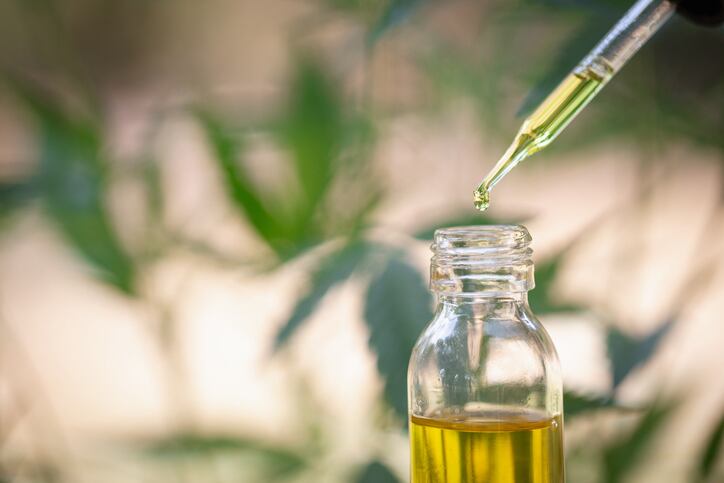The webinar, which you can listen to on demand by clicking here, featured four speakers. They were Duffy McKay, ND, senior vice president of scientific and regulatory affairs for hemp products brand CVSciences, Aaron Secrist, head of quality for NOW, Justin Prochnow, an attorney with Greenberg Traurig, and Steven Hoffman, a consultant and principal in the firm Compass Natural Marketing.
Should it be legal? Sure. Is it safe? Um . . .
I presented several polling questions during the webinar. The first was a softball: Should CBD be allowed in dietary supplements? Almost all said yes.
The second was a bit more divided: Do you think CBD has been proven to be safe? Surprisingly, more than half of respondents, or 55%, said no. The scientists and the industry obviously have some work to do there.
Then came a multiple choice question that bore upon dosages. Let’s assume that when FDA comes back in early fall with whatever they have determined based on what they heard at their meeting on May 31 and what has been submitted subsequently, the agency will lay out a pathway for a CBD dietary supplement marketplace. It’s hard to think that the agency won’t, given the size of the market already. But as a caveat, some stakeholders have reminded me that there was once a thing called ephedra, and that was pretty popular, too.
How to draw the drug/supplement line
One of the things that will need to be clarified for such a marketplace to legally unfold will be an upper dose limit for what’s in supplements as opposed to the drug form. GW Pharma’s approved drug Epidiolex is an almost pure form of CBD and is given at a maximum recommended maintenance dosage of 10mg/kg. So what could a supplement get away with and not look too similar to the drug?
The choices on the question I posed were 10mg/serving, 30 mg, 50 mg, <100 mg, or ‘don’t know.’ Of those who responded to the question, more said they didn’t know (61%) then all other responses put together. For the rest there was fairly even distribution, with a slight preference for 50 mg. So there is still as little consensus on this question as there is on the question of safety.
Another issue will be the description of a dietary supplement based on hemp. At the moment, many hemp supplements are calling themselves ‘full spectrum extracts.’ In some cases this seems to be motivated by a sincere belief of the part of the formulators that all of the many cannabinoids, terpenes and other compounds resident in the plant should be represented to get the best health effects. In other cases, it seems to be a way to get some regulatory cover, by avoiding the perception that you are concentrating CBD as an isolate and adding it back into products.
Omega-3s tale is promising and cautionary at same time
This dosage demarcation line is currently being testing in the omega-3s realm, which is often held up as an example of what the CBD supplement/drug world could look like. There have been omega-3 drugs on the market for years in highly purified forms. But back in the day the majority of dietary supplements were based on relatively low concentration fish oils.
Now that companies are offering supplements with omega-3 concentrations of as much as 90%, this easy coexistence seems to be breaking down. Amarin, a drug maker with US roots that has a tax-haven headquarters in Ireland, is aggressively protecting the turf for its drug Vascepa by claiming that the ethyl ester forms of omega-3s, which is the form many supplements end up in after the concentration process, should be classified as drugs, period.
Fish oils as supplement ingredients developed more or less organically over many decades (or centuries, if legacy forms like cod liver oil are included). In the case of CBD, there is an opportunity to draw this supplement/drug line in the sand at the outset, rather than resorting to the court system after the fact, which is what seems to be happening in omega-3s.
Question of transport
Another question that was brought up by a number of the webinar listeners is the question of how to legally transport these ingredients. The 2018 Farm Bill is widely seen as having made interstate commerce legal.
But not every jurisdiction agrees. There is an ongoing case in Idaho where a trucker was stopped (apparently for a traffic violation) and when he was found to be carrying a load of CBD products the entire shipment was seized. Hoffman, who was familiar with the case, said more than $1 million worth of goods is at stake, to say nothing of the trucker’s fate. At last word, he was still set to stand trial in October.
The panelists didn’t have an easy answer that that one. Prochnow joked that rigid adherence to traffic laws is probably a must when transporting CBD. And the panelists agreed that trying to route loads around states that are not yet on the CBD bandwagon, states like Idaho and Iowa, is probably the best near term solution, however unsatisfactory it may be.
When I was a kid the state of Wisconsin had a law meant to protect the dairy industry that prohibited yellow margarine from being sold in the state. You had the spectacle of state troopers stopping cars to search for margarine smugglers coming up from Illinois. It didn’t last long, because it quickly started to seem ridiculous.
I think the current situation where CBD/hemp products can be freely transported in some places and not in others will be seen as ridiculous, too. In the meantime, though, it’s a real risk and no laughing matter. It’s another straw on the camel’s back, and another reason why FDA must act quickly to bring some sanity to the sector.




